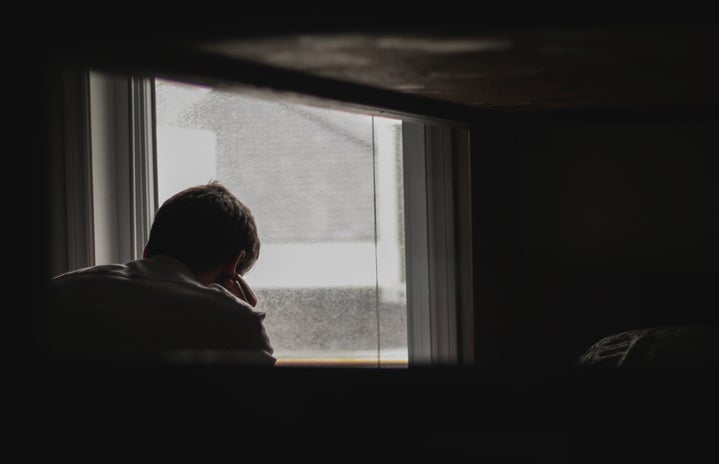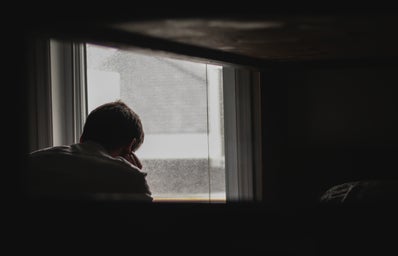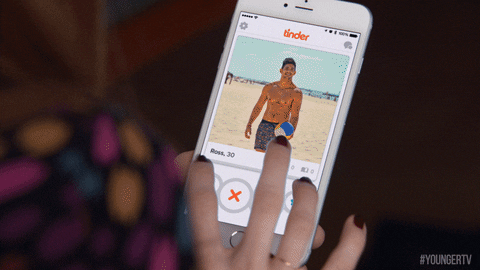Let’s face it: it’s difficult to meet a romantic partner in an organic way. From envisioning meeting someone through serendipitous circumstances to “love at first sight” encounters, many people like to imagine that romance will hit them naturally as it does in the movies, but that’s not always the case (it rarely is). Seeking a partner in the real world is rough, but with the rise of dating apps, romantic connections have been able to flourish in a more efficient, easy-access way.
Or, well, sort of. One would think it would be easier to find love on an app since you have access to a plethora of profiles all suited to your preferences, but, in actuality, this is exactly the reason why it’s harder.
“When the number of options increases, we become maximizers — unsatisfied with those options, and wanting more,” says Leah Reich from the New York Times. “On Tinder, we can judge, swipe, and date as if there is an unlimited number of matches. When faced with boundless choices, can we ever choose?”
With billions profiles on these apps, many users have to play “the numbers game” when it comes to establishing matches, which is an attempt to influence the algorithm to give you better, high-quality matches. If you like more profiles, interact more with prompts, and actually start chatting with other users, then maybe you’ll raise the visibility of your profile and finally get bombarded with likes. There’s all sorts of videos, discussions threads, and posts regarding how to increase your likes and matches online, emphasizing how difficult online dating really is, especially when we’re too easily caught up in analyzing the algorithms.
Quickly, dating apps become an addicting, algorithmic game: the constant sifting through profiles, the hit of dopamine with each “match” notification, and the validation that comes from knowing someone out there on the web finds you attractive. “Dating apps are able to hijack the brain to find much more pleasure in the chase rather than in the catch,” says Medium. “These dating apps operate with the same principles used by casino slot machines which use a variable reward system to strongly encourage players to keep pulling a lever… because they never know when the next jackpot or hottest new match will come next.”
Dating apps work in cyclical patterns: match, chat for a bit, lose interest, ghost, then it’s off to find a better match and repeat the process all over again. Many users get sucked into viewing the app as a competition, and eventually, they lose hope that they can establish a loving, genuine connection. This struggle inherently impacts one’s mental health and self-esteem, making people feel more isolated despite the endless potential partners scattered about online.
Coupled with the social isolation that came with COVID-19, the lack of real connections on the app has also contributed to the loneliness epidemic. It’s easy to lose hope when you’re not receiving likes or matches and the endless pool of choices doesn’t exactly fit your liking. You begin to question your own worth: am I unattractive? Am I too boring? Too much? It’s even more difficult when swiping on dating apps feels noncommittal, easy, and anonymous in the sense that you’re admitting to liking someone without being physically present. It’s common for people to not take the app as seriously for these reasons, so of course, one would feel discouraged and alone while using the app.
Reddit user fragilekisses shares their thoughts on the loneliness that comes with online dating, saying, “After dealing with all of that over and over, I usually get fed up with everything and delete my account only to come back months later because the loneliness gets so crippling that I just want to have a change to talk to people again.” Their post also highlights how many instances of harassment people face on these apps daily, which can only be further isolating and harmful to one’s mental health. Much like social media and any other online platforms, one can easily be subject to discrimination on dating sites, which further complicates the process of online dating as a whole.
Additionally, problems that contribute to feelings of isolation can be traced back to the capitalistic system of dating apps themselves. The apps allow anyone to sign up for free, but tools that boost your profile’s visibility are trapped behind a paywall; the company wants you to pay them in order to receive better matches. Hinge and Tinder offer the idea that you can find “the one” on their apps, convincing users to stay on the app for much longer. The apps are inherently shaped by our capitalistic society to the point that we view love as a commodity.
According to Medium, “one of the consequences of the capitalist world where we live is the ‘use and throw away’ culture. Now, we can even find it in sexual-affective relationships. It is equivalent to getting a new mobile phone and then wanting a better one after just a few months.” In combination with the apps’ addicting design, it’s not surprising why people have so much difficulty with genuine connections when love itself has become both a competition and a source of profit.
While it’s not entirely impossible to make a true match online, dating apps have only added new complications to finding love in an our ever-modernizing society. If you want to test the waters despite its problems, feel free to do so. Just remember to proceed with caution!



